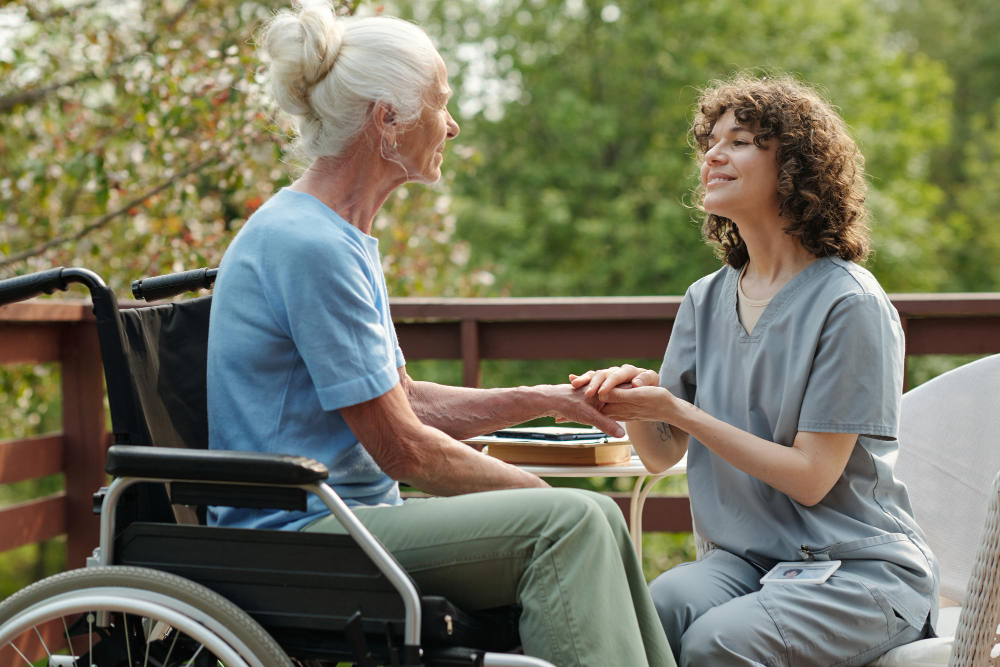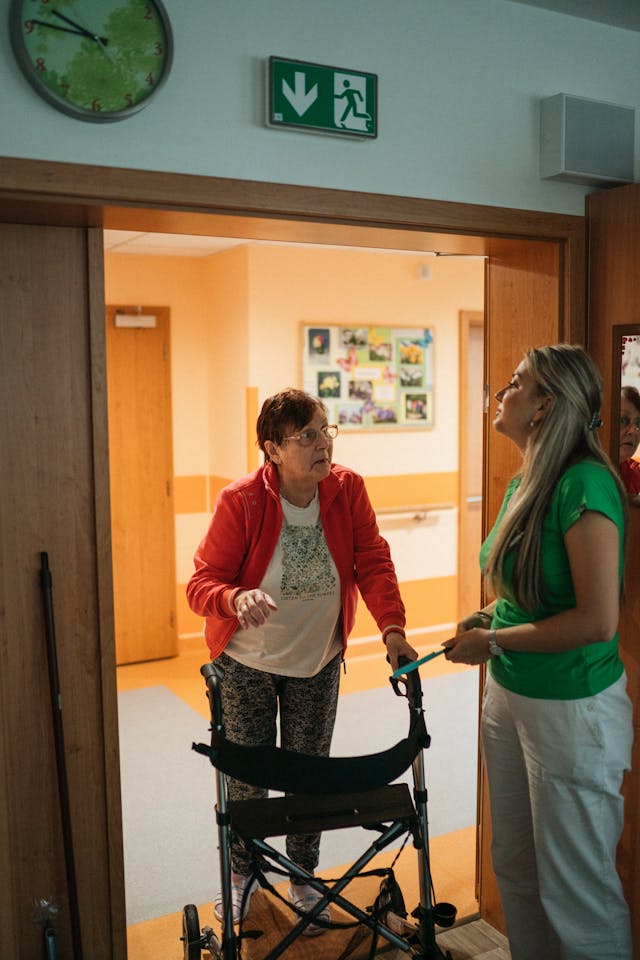
I. Introduction
Residential caregivers play a vital role in our society by providing essential care and support to individuals who cannot fully care for themselves. This role demands a unique blend of skills to ensure that residents receive the highest level of care while maintaining their dignity and independence. This article delves into ten essential skills every residential caregiver needs, particularly focusing on handling challenging behaviors and situations with professionalism and compassion.
II. Understanding the Role of a Residential Caregiver
Residential caregivers’ responsibilities are extensive and multifaceted. They provide assistance with daily living activities such as bathing, dressing, and eating, administer medications, monitor health status, and offer emotional support. Caregivers must also ensure a safe living environment, which includes managing potential hazards and responding to emergencies.
The role requires a deep commitment and an understanding that caregiving is not just a job but a calling. It involves being physically present and emotionally available to residents, often forming strong bonds that can positively impact both the caregiver and the resident.

III. Effective Communication Skills
Effective communication is the cornerstone of successful caregiving. It builds trust, reduces misunderstandings, and enhances the overall quality of care. Here are some key aspects of effective communication:
- Active Listening: This involves fully concentrating, understanding, responding, and remembering what the resident says. It shows respect and makes the resident feel valued. Techniques include nodding, maintaining eye contact, and repeating back what the resident has said to confirm understanding.
- Empathy: Understanding and sharing the feelings of another helps in building a strong rapport. Express empathy through verbal acknowledgments and non-verbal cues like nodding and appropriate facial expressions.
- Clear Communication: Speak in simple, direct language. Avoid medical jargon that residents might not understand. Use short sentences and clear instructions, especially when dealing with residents who have cognitive impairments.
- Non-Verbal Communication: Body language, facial expressions, and tone of voice often convey more than words. Being mindful of these cues can help in understanding a resident’s needs and feelings better.
IV. Empathy and Compassion
Empathy and compassion are integral to caregiving. They help caregivers connect with residents on a deeper level, fostering a supportive environment where residents feel understood and cared for.
- Understanding Empathy: Empathy involves recognizing another person’s emotional state and responding with appropriate care and concern. It goes beyond sympathy by actively engaging in understanding the resident’s feelings and experiences.
- Demonstrating Compassion: Compassion involves taking actions to help alleviate another person’s distress. This can include small acts of kindness, such as listening to a resident’s concerns, offering comfort during difficult times, or simply spending time with them.
- Building Empathy and Compassion: Caregivers can cultivate these qualities by engaging in regular self-reflection, mindfulness practices, and training programs focused on emotional intelligence. It’s also helpful to seek feedback from peers and supervisors to improve these skills continually.
V. Patience and Flexibility
Patience and flexibility are critical in handling the unpredictable nature of caregiving. Residents may exhibit challenging behaviors due to medical conditions, medications, or emotional distress. Here’s how caregivers can develop these essential traits:
- Developing Patience: Patience is about staying calm and composed, even in stressful situations. Techniques such as deep breathing, mindfulness meditation, and setting realistic expectations can help caregivers maintain patience. Understanding that residents’ behaviors are often a symptom of underlying issues rather than deliberate actions can also foster patience.
- Being Flexible: Flexibility involves adapting to changing situations and being willing to adjust plans as needed. Caregivers can practice flexibility by keeping an open mind, being willing to try new approaches, and staying focused on the resident’s needs rather than rigid routines.
- Strategies for Patience and Flexibility: Implementing a structured yet adaptable daily routine, using positive reinforcement, and employing behavioral management techniques can help in managing challenging behaviors effectively.
VI. Problem-Solving and Decision-Making Skills
Caregivers often face complex situations that require effective problem-solving and decision-making skills. These skills enable caregivers to address issues promptly and appropriately, ensuring the safety and well-being of residents.
- Importance of Problem-Solving: Effective problem-solving involves identifying the problem, analyzing the situation, developing potential solutions, and implementing the best course of action. It requires critical thinking and the ability to remain calm under pressure.
- Decision-Making Skills: Good decision-making is about choosing the best option from various alternatives. This involves evaluating the pros and cons of each option and considering the resident’s preferences and best interests.
- Enhancing These Skills: Caregivers can improve their problem-solving and decision-making abilities through training, seeking mentorship, and participating in workshops. Role-playing different scenarios and discussing them with peers can also provide valuable insights and practice.
VII. Conflict Resolution Skills
Conflicts are a natural part of any caregiving environment due to differing personalities, needs, and expectations. Effective conflict resolution skills are essential to maintaining a harmonious environment.
- Understanding Conflict: Conflicts can arise from misunderstandings, unmet needs, or differences in opinions. Recognizing the root cause of the conflict is the first step in resolving it.
- Techniques for Resolution: Effective conflict resolution involves active listening, empathizing with the other person’s perspective, and finding a mutually acceptable solution. Techniques such as mediation, negotiation, and seeking a compromise can be highly effective.
- Practical Tips: Caregivers should stay calm, avoid taking conflicts personally, and focus on the issue rather than the person. Using “I” statements instead of “you” statements can also help in communicating feelings without blaming the other person.
VIII. Self-Care and Stress Management
Self-care and stress management are crucial for caregivers to maintain their health and prevent burnout. Caregiving is physically and emotionally demanding, and without proper self-care, caregivers can quickly become overwhelmed.
- Importance of Self-Care: Regular self-care helps caregivers recharge and maintain their well-being. It includes activities that promote physical, emotional, and mental health, such as exercise, hobbies, and socializing.
- Stress Management Techniques: Effective stress management techniques include mindfulness meditation, deep breathing exercises, and progressive muscle relaxation. Caregivers should also seek support from peers, supervisors, or professional counselors when needed.
- Incorporating Self-Care into Daily Routine: Setting aside time each day for self-care activities, establishing boundaries to prevent overworking, and regularly evaluating personal stress levels can help caregivers manage stress effectively.

IX. Continuous Learning and Professional Development
The field of caregiving is continuously evolving, with new research, techniques, and best practices emerging regularly. Continuous learning and professional development are essential for caregivers to stay updated and provide the best possible care.
- Importance of Continuous Learning: Ongoing education helps caregivers keep up with the latest developments in healthcare, understand new treatment methods, and improve their skills. It also fosters a sense of professional growth and satisfaction.
- Resources for Learning: Caregivers can access a variety of resources for continuous learning, including workshops, seminars, online courses, and professional conferences. Joining professional organizations and subscribing to industry journals can also provide valuable information and networking opportunities.
- Encouraging a Learning Culture: Care organizations should promote a culture of continuous learning by providing access to training programs, encouraging attendance at industry events, and supporting caregivers in their professional development goals.
X. Conclusion
Residential caregivers play an indispensable role in providing care and support to individuals in need. The job requires a diverse set of skills, including effective communication, empathy, patience, problem-solving, conflict resolution, self-care, and continuous learning. By focusing on these skills, caregivers can handle challenging behaviors and situations with professionalism and compassion, ensuring the highest quality of care for residents.
Caregivers must continuously strive for personal and professional growth, not only to improve their caregiving abilities but also to enhance their own well-being. By doing so, they contribute significantly to the health and happiness of the residents they care for, making a profound difference in their lives.
Frequently ask questions (Faqs)
Why are the 10 principles of caregiving important?
The ten principles of caregiving are important because they provide a comprehensive framework for caregivers to deliver high-quality care. These principles ensure that caregivers focus on the holistic well-being of residents, encompassing physical, emotional, and social aspects. By adhering to these principles, caregivers can offer compassionate, ethical, and effective care that respects the dignity and individuality of each resident.
What is the most important skill for a caregiver?
While all caregiving skills are essential, empathy stands out as the most important. Empathy allows caregivers to understand and share the feelings of their residents, fostering a deep connection and trust. This emotional bond is crucial for providing personalized care that meets the unique needs of each resident, enhancing their quality of life and overall well-being.
What are the 11 core competencies of caregiving in NC2?
In the National Certificate II (NC2) for caregiving, the 11 core competencies typically include:
Communication: Effective verbal and non-verbal communication with residents and their families.
Personal Care: Providing assistance with hygiene, grooming, and other personal care tasks.
Mobility Assistance: Helping residents move safely, including transferring and positioning.
Observation and Reporting: Monitoring health conditions and reporting any changes.
Health and Safety: Ensuring a safe environment and understanding basic first aid.
Infection Control: Implementing practices to prevent and control infections.
Nutrition Support: Assisting with meal preparation and feeding, ensuring nutritional needs are met.
Emotional Support: Providing emotional and psychological support to residents.
Housekeeping: Maintaining a clean and safe living environment.
Medication Management: Assisting with medication administration and management.
Ethical and Legal Responsibilities: Understanding and adhering to ethical standards and legal requirements in caregiving.
What are the skills required for a care worker?
Care workers need a diverse set of skills to provide effective care. These include:
Effective Communication: Clear and empathetic interaction with residents and their families.
Compassion and Empathy: Understanding and addressing the emotional needs of residents.
Patience and Flexibility: Remaining calm and adaptable in various situations.
Problem-Solving: Quickly and effectively addressing issues as they arise.
Conflict Resolution: Managing and resolving conflicts constructively.
Self-Care: Maintaining personal well-being to prevent burnout.
Time Management: Efficiently managing time to balance multiple tasks.
Physical Stamina: Performing physically demanding tasks like lifting and transferring residents.
Observation Skills: Monitoring residents’ health and well-being accurately.
Technical Skills: Using medical equipment and technology competently.
Cultural Competence: Respecting and understanding residents’ diverse backgrounds and needs.
These skills ensure that care workers can provide comprehensive and compassionate care, enhancing the quality of life for those they serve.
You may also like
- https://mychartspace.com/how-to-become-a-caregiver/
- https://mychartspace.com/health-and-safety-in-residential-care-homes/
- https://mychartspace.com/caregiver-burnout/
- https://mychartspace.com/digital-charting-for-caregivers/
- https://mychartspace.com/dealing-with-difficult-elderly-patients/
- https://mychartspace.com/how-to-manage-caregiver-stress/
- https://mychartspace.com/marketing-tips-for-residential-care-homes/

